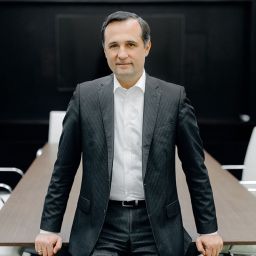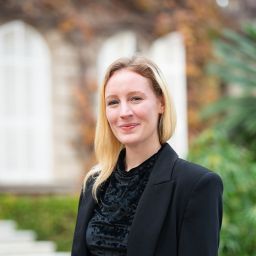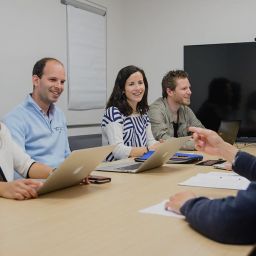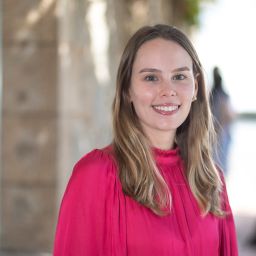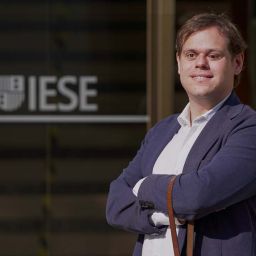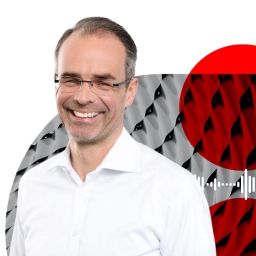Aya Sakai is a winner of an IESE Future Female Leaders Award 2024. She is currently on an MBA program at IESE in Barcelona, Spain, having previously worked for the Development Bank of Japan.
A recent Kyodo News survey revealed that only 13 of Japan’s top 1,600 companies have female CEOs. What’s more, only around 15% of the country’s private-sector executives are women, according to the Organization for Economic Cooperation and Development (OECD). Aya Sakai is determined to help change those statistics.
“My mission is to be a leader in the Japanese renewable energy industry, which is a very traditional, male-dominated industry, and by being a leader in that industry, maybe I can change Japanese society a little bit,” says the current IESE MBA student (Class of 2026).
Her decision to do an MBA at IESE was an important step toward accomplishing that mission. “The opportunity to learn leadership skills and to work with teammates from international backgrounds in an intense environment will really help me when I go back to Japan,” she says.
A focus on renewables
Before embarking on an MBA, Sakai worked for the Development Bank of Japan (DBJ) in Tokyo and in London. One aspect of this organization that she valued highly was that it pursued not only profit but also social impact; that part of its mission was to support and help its customers.
As is common in many Japanese companies, Sakai gained valuable experience in many different departments and sections, from financial analysis to human resources, which was quite a challenge for her, having to quickly get up to speed in new fields every one or two years.
This employment policy did, however, give her the opportunity to work in the renewable energy sector, leading her to the conclusion that it was what she wanted to focus on in the future.
Much of the innovation in the renewable energy sector is being developed in Europe, another factor that attracted Sakai to studying in Barcelona. She wants to learn more about green energy technologies in Europe that can help change the energy landscape in Japan.
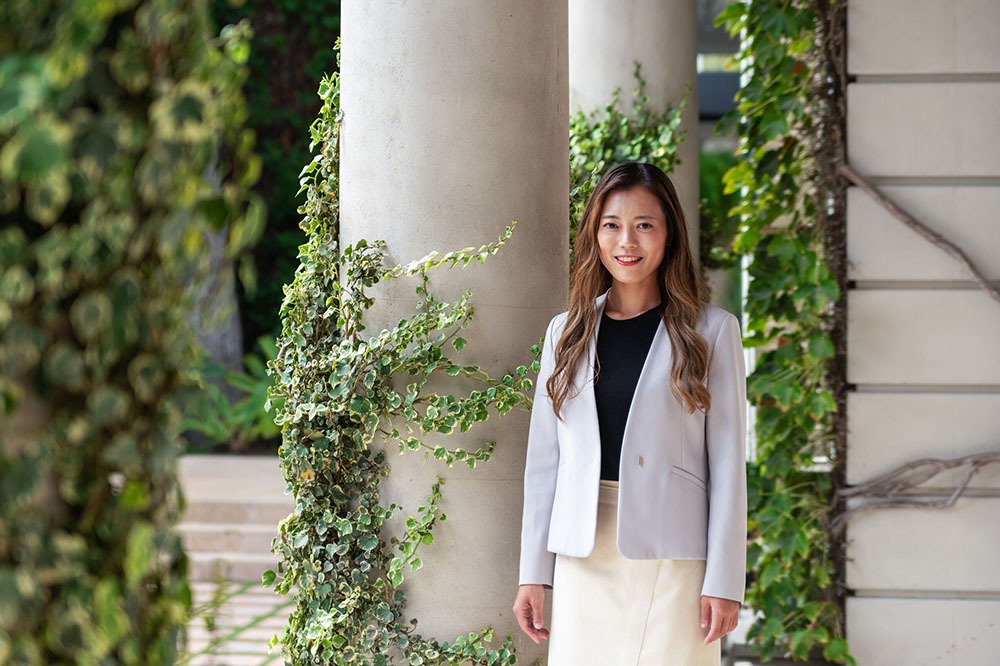
Teamwork and leadership
While at IESE, Sakai is also getting used to working with people from a wide variety of different backgrounds and cultures, something she has not had to do before. In her team there are students from Argentina, Brazil, Chile, Germany, Kenya, Saudi Arabia, Spain and the U.S., in addition to classmates from Japan, all with different management methods and communication styles, which naturally presents certain challenges.
For Sakai, the solution to those challenges is respect, both for people and for processes. “Individually we each have strengths and weaknesses, and we can all learn from each other,” she says. “And we have strict team rules, a contract that nobody breaks, and that helps us work together effectively in a comfortable manner.”
As an undergraduate, Sakai was a trainer for an American football team, where she enjoyed working for and with other people and achieving good things as part of a great team. And great teams need great leaders.
In her time working in different departments at the DBJ, Sakai had many different bosses. The best leaders, in her opinion, were “insightful, considerate, visionary and hardworking.” Bravery and having the courage to be disruptive are also values that she thinks are important. “A woman who dared to take the challenge of being the first female director in our company is someone I really respect,” she says.
A role model
As the winner of an IESE Future Female Leaders Award 2024, Sakai sees herself as being “a role model for younger female generations” in Japan. “In an environment where there are few female leaders or few female managers, women may feel a little uncomfortable. I want to show them that you can do it. Hopefully, my achievements and the good that I do will encourage and empower some people,” she says.
An achievement from her professional career up until now was, while working for the HR department at the DBJ, managing to increase the number of female applicants for certain roles that had been traditionally carried out by men. “Establishing a good work-life balance can be difficult in Japanese companies; maybe that’s one reason why there are so few female leaders,” she explains.
Less successful was her attempt to introduce reforms so that more men occupied positions that were seen as jobs for women. But that was a useful learning experience about how to manage change.
Looking to the future
Sakai is driven by a desire to “do good things for society,” especially in renewable energy. She envisions a future where the widespread use of clean energy technologies, some yet to emerge, will help achieve net-zero emissions, allowing people to enjoy the benefits of energy without harming the environment.
Sakai’s journey is set to be one of breaking barriers and inspiring change in a traditionally male-dominated society. Her experiences at the DBJ, her commitment to the renewable energy sector and the leadership skills she hopes to perfect at IESE reflect a powerful ambition not only to rise as a leader but to pave the way for future generations of women in Japan.
As she works to challenge the status quo, she embodies a new wave of leadership that is insightful, courageous and inclusive. Her example underscores the importance of diversity in driving industrial and societal change.
Are you a young professional woman with big accomplishments and even bigger goals? Apply to the next IESE Future Female Leaders Award. IESE will select a small number of young professional women who embody IESE’s mission, are focused on developing their careers and on making a positive impact in the world. The next IESE Future Female Leaders Award will take place on Jan. 28-30, 2025, on IESE’s Barcelona campus, coinciding with the Women in Business Conference.



